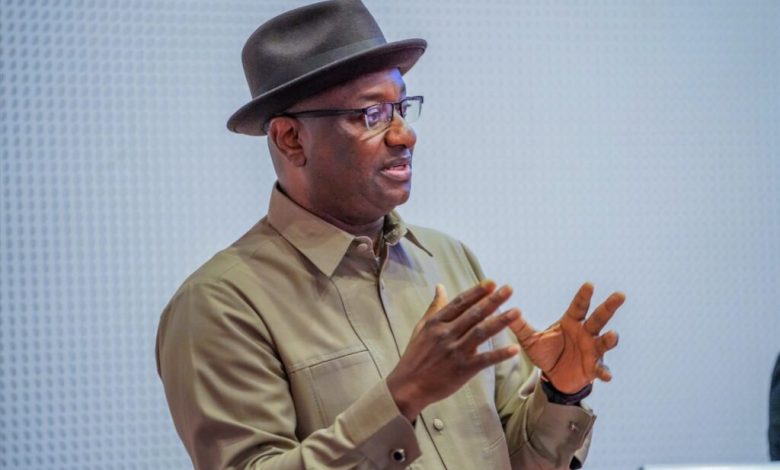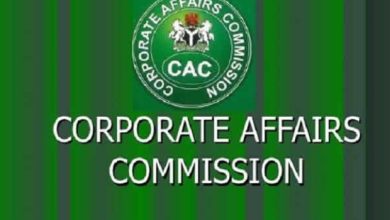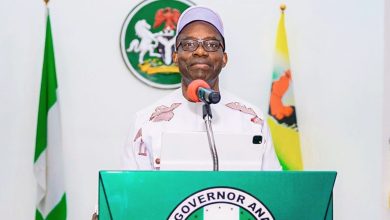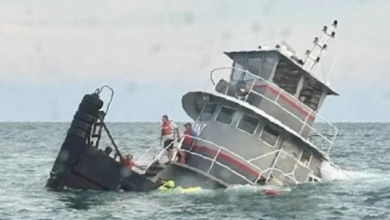FEC approves Port Harcourt Airport concession, Maitama 2 infrastructure, others

The Federal Executive Council (FEC) on Thursday approved the concession of Port Harcourt International Airport to private investors, a move aimed at improving efficiency and service delivery in Nigeria’s aviation sector.
The Council also approved the long-awaited contract for the provision of engineering infrastructure in Maitama 2 District of the Federal Capital Territory (FCT), Abuja, among other significant developmental projects.
Aviation and Aerospace Minister Festus Keyamo, who briefed reporters after the FEC meeting presided over by President Bola Tinubu, assured aviation workers that the concession of Port Harcourt Airport would not lead to job losses.
He emphasised the government’s commitment to protecting workers’ rights while pursuing reforms to make the aviation sector more commercially viable.
“We have two major airports now that have approvals in terms of the business case to begin finalizing with private investors.
”One of them is the Port Harcourt International Airport. Let me assure the unions that nobody will lose his job as a result of these concessions.
”I am pro-union, pro-workers, and I will engage them to ensure they are comfortable with the process,” Keyamo said.
The minister explained that the government’s objective is to ensure airports operate sustainably, noting that many airports currently run at a loss with revenues from Lagos, Abuja, and Kano subsidising operations in other regions.
He said that prior to this administration, Port Harcourt Airport was unattractive to investors, but improvements under the current government have made it a competitive option, with six investors expressing interest in managing the airport.
Other aviation-related approvals secured from FEC include contracts for maintenance and support services for airport management solutions across Nigeria’s five international airports Abuja, Lagos, Kano, Port Harcourt, and Enugu.
The Council also approved the procurement and installation of advanced tertiary power systems and navigational aids, as well as the acquisition of fifteen airport rescue and firefighting vehicles to meet International Civil Aviation Organization (ICAO) standards.
In addition, FEC approved the construction of a permanent headquarters for the Nigerian Airspace Management Agency in Abuja and the concession of biometric verification systems to integrate passengers’ National Identification Numbers into boarding processes.
The upgrades are expected to enhance aviation security, improve operational efficiency, and allow airports to operate at global standards.
The Council further approved contracts under the ministry’s 2024 budget to improve lighting systems at airports, enabling night operations and increasing passenger capacity for local airlines.
Keyamo stressed that these reforms were designed to make Nigerian airports safer, more efficient, and commercially sustainable.
Minister of the FCT, Chief Nyesom Wike, announced that FEC approved a fresh contract for the provision of engineering infrastructure in Maitama 2 District, which spans approximately 786 hectares.
The project, initially awarded five years ago, had stalled until the current administration took decisive steps to revive it.
Wike explained that Maitama 2 is planned as a new residential and commercial district and aligns with President Tinubu’s commitment to expanding development across the FCT.
“Many people had been allocated land in Maitama 2 before this administration, but there was no provision of infrastructure.
”This is a very ambitious project, and we are determined to give it all the attention it deserves to open up that district,” Wike said.
FEC also ratified contracts for the design and construction of official residences for the heads of key courts, including the President of the Court of Appeal, the President of the National Industrial Court, the Chief Judge of the Federal High Court, and the Chief Judge of the FCT High Court.
The Council further approved the provision of water supply to several satellite towns, including Karu, Karshi, Orozo, and Bwari.
Wike recalled that President Tinubu had earlier inaugurated the Greater Abuja Water Supply Project, with plans to extend it to surrounding communities.
The Council approved two major external loan facilities totaling $396 million to support humanitarian and health projects in northern Nigeria.
Finance Minister Wale Edun explained that the first facility is a $300 million World Bank credit for internally displaced persons and host communities across several northern states.
The second is a $96 million combined credit from the Islamic Development Bank and the African Development Bank, $50 million and $46 million respectively, for the Sokoto Health Infrastructure Project, with counterpart funding from Sokoto State.
Edun described the projects as critical to the administration’s Renewed Hope Agenda, aimed at addressing regional disparities, improving access to healthcare, and rebuilding communities affected by conflict and displacement.
The Finance Minister also briefed the Council on the state of the economy, noting that the latest data showed a strong turnaround driven by fiscal and monetary reforms.
He reported that the economy recorded growth of over 4.2 percent by the second quarter, while inflation declined to 18 per cent.
According to Edun, consumer spending on essentials such as food, health, and transport has fallen from 90 percent to about 50 percent of income, reflecting improved affordability and a reduction in the cost of living.
Minister of Arts, Culture, Tourism and the Creative Economy Hannatu Musawa announced that FEC approved the establishment of a Presidential Task Force on “Detty December,” aimed at positioning Nigeria as a global destination for end-of-year tourism and entertainment.
The Council also approved the creation of Tourism and Cultural Economic Zones across the six geopolitical zones and the FCT to promote regional tourism and cultural assets.
National tourism brands, including “Naija Season,” were adopted for year-round festival promotion, and the Presidential Council on Tourism Promotion and Investment, chaired by President Tinubu with Musawa as vice-chair, was established to coordinate inter-ministerial efforts to attract investment and enhance Nigeria’s global image.
The Council also endorsed an Intellectual Property Policy and Legal Framework developed jointly by the Ministries of Industry, Trade and Investment, Justice, and Arts, Culture, and Tourism.
The policy allows creatives to leverage intellectual property as collateral for financing, unlocking private-sector funding for Nigeria’s creative economy.
Musawa described the policy as a “game-changer” for monetizing creative works and expanding the sector.



